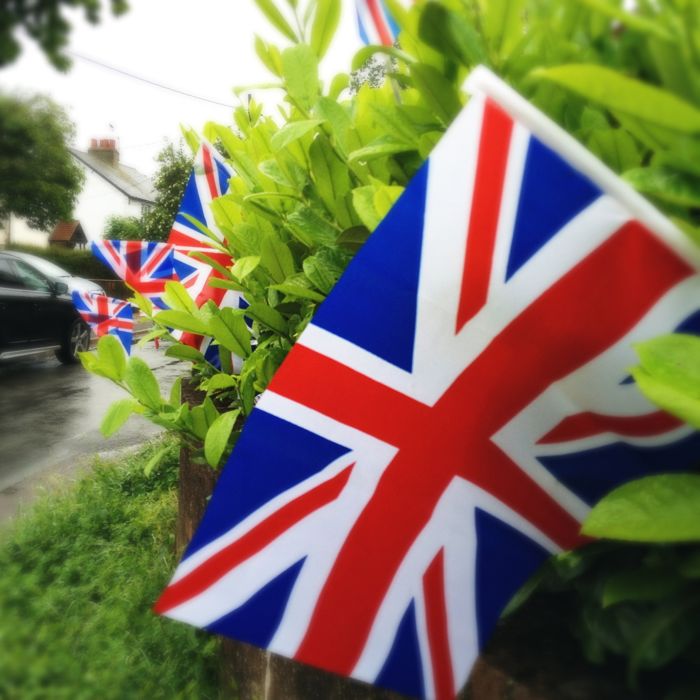When you decide to live abroad, one of the things you learn about is the tedious process of work permits and visas, the rules that countries put in place to keep other people out, to restrict the free flow of immigrants into their great nations. I’ve been through this a couple of times already and it’s because of this process that I can’t be eco-friendly and get all my bank statements and other bills online. I must have the original paper copies of everything. I have file cabinets overflowing with paper I do not want to receive. We are in the 21st Century aren’t we? But I digress.
Well it’s time for me to go through this process again, for what I hope is one of the last times in the UK. And this time, well, I’ve got to take a test. I’m not trying to become a UK citizen but I still have to take the same test to prove that I understand what it’s like to be British, to live life in the UK. And because I work best with a deadline, I’ve booked myself a test appointment at the end of this month and I’ve got lots of study material and a few practice tests to get through between now and then.
So here’s the thing. It just so happens that there is a lot of national pride here in the UK these days with the Queen’s Diamond Jubilee this past weekend and the Olympics around the corner. And I thought what better way to “revise” (Brit lingo for studying) than to share some of the things I’ve learned over the next few weeks. Maybe this will help me pass my test and help everyone else learn a little more about the United Kingdom as it’s set to take the world stage next month.
Building a Kingdom
First things first. It’s important to understand the difference between the Commonwealth, the United Kingdom, Great Britain and England. It’s easy to fall afoul of the nomenclature so if you want to impress your British friends, show them that you know these don’t all mean the same thing. I could write-up a bunch of boring stuff to explain this, or just watch this video.
As you’re watching the Olympics, note that in most sports (i.e football, rugby), there are four different teams that compete internationally for the countries of the United Kingdom. However for the Olympics, there is only one team for the entire UK.
The first chapter of my “Life in the UK” study guide is really a history lesson. What I’ve found interesting is that I’ve quizzed my UK family and they can’t answer these questions. Maybe they should have to pass a test to keep living here? I started to recount a lot of the history here but as I was typing it all up, I thought, my god, this is the most boring post I’ve ever written. So while this week is still all about UK history, I’ve just picked out a few things that almost seemed current. Like:
- Early Britain was characterized by war. First by the Romans, Anglo-Saxon tribes, Vikings, and then Normans, trying to claim the land. Then it was the Protestants and Catholics fighting to claim the Crown, the land, and the loyalty of the people. The Protestants eventually won out everywhere except Ireland. Extremist religion never seems to be on the right side of history.
- Though King John signed the Magna Carta in 1215 limiting the power of the monarch, it wasn’t until 1688 that Acts of Parliament officially created the constitutional monarchy of today.
- Who knew that the Black Plague had a bright side? It led to a labor shortage which created lots of jobs for the poor and eventually led to the development of a middle class.
- “Perhaps the most important principles of the Enlightenment were that everyone should have the right to their own political and religious beliefs and that the state should not attempt to dictate in these matters.” Maybe modern-day America could learn a few things from 18th Century England?
- The UK has had strong female leaders throughout history, Boudicca, Elizabeth I, Queen Victoria, Elizabeth II, Margaret Thatcher. Yet women did not get the right to vote until 1928.
- It was only in 1922 that Ireland split in two. This seems fairly “recent” and has me looking at Scotland’s latest push for independence with a different lens.
- Despite the loss of America, at the end of the 19th century over 400 million people globally were ruled by the Crown. Watching all the Diamond Jubilee events over the past days has just reinforced that even today the Commonwealth’s reach is vast and diverse.
- The UK’s National Health Service has provided a minimum standard of healthcare for everyone since 1945. The world hasn’t ended, there aren’t any death squads, and the UK life expectancy is higher than that of the US. America are you listening?
As I’ve spent the weekend watching the Queen’s Jubilee celebrations (and wishing she’d hung ten on some water skis yesterday), I can’t help but contrast this to the divisiveness in America today. Here I feel like there is unity across the nation even though there are so many cultures and faiths represented in the British Commonwealth. I feel like no matter what someone’s political or religious beliefs, people here don’t take it personally as these aren’t what define people. And they have a sense of humour about it all. That even if you disagree, you’re able to laugh about it and still come together and celebrate. Here, I see the true scope and meaning of empire. When have you last seen Americans come together in a unified way like this? WWII?
Finally, I’ll share the official song for the Queen’s Diamond Jubilee celebration. A testament to the reach and popularity of the Queen, Sing is written by Gary Barlow and Andrew Lloyd Webber. And features Prince Harry rocking out the tambourine.
Next week, join me as we’ll learn about the changing UK society.
Also, if anyone knows what the Queen carries around in her little black handbag, I’d love to know.
And, if you’re an expat and have taken the Life in the UK test, feel free to leave me a comment and tell me all about how easy (or hard) the test is.
* Source for all: Life in the United Kingdom: A Journey To Citizenship 2nd Edition by the Home Office




